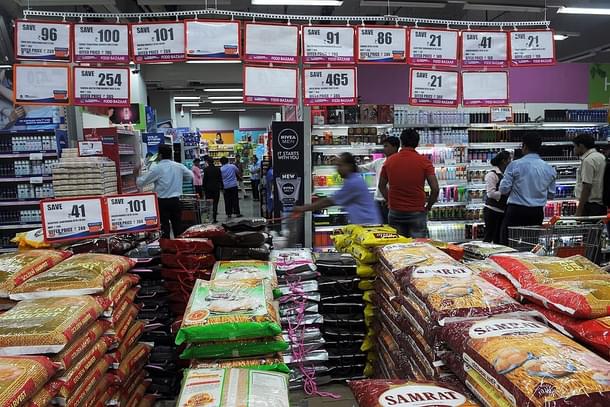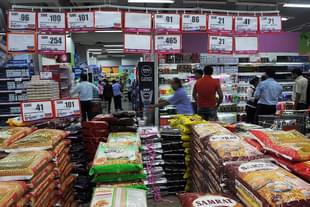Economy
Post-Demonetisation GDP Blues May Be Overblown; We Shouldn’t Rule Out A Spike Either
R Jagannathan
Dec 01, 2016, 02:36 PM | Updated 02:32 PM IST
Save & read from anywhere!
Bookmark stories for easy access on any device or the Swarajya app.


Post-demonetisation, the consensus among economists and brokerage hacks is that GDP growth should slow down for at least two quarters. This much seems prima facie likely, since anecdotal reports talk of people buying less, and small vendors in the informal sector seeing a larger drop in business due to the cash crunch.
But economists are all over the place in assessing impact, with GDP drop estimates ranging from almost nothing to as high as 3.3 per cent. Clearly, most of them will be wrong.
And the man calling out this hocus-pocus is none other than Aditya Puri, managing director of HDFC Bank. In an interview to Business Standard today (30 November), when asked about his reaction to predictions of GDP doom, he replied forthrightly: “I think it is absolute nonsense. How many times have analysts and economists been right? How do they know GDP will fall? How do they know credit growth will slip? What has happened that will change credit growth so dramatically? If someone can explain it to me how he thinks it (credit growth) can come down from 14 per cent to six per cent, I will answer the question less vehemently.”
Not that Puri thinks there will be no impact. He agrees that there will be “some impact on GDP during the transition period….maybe consumption demand may be marginally affected.”
But nothing as dramatic as what some doomsayers have been predicting.
On the other hand, no one talks of even the possibility of a spike in GDP growth due to demonetisation.
Here’s the argument: while everyone has noted the drop in business in some segment, in just three weeks banks have reported an inflow of Rs 8.44 lakh crore as deposits. Not all of this is from individuals. Much of it could be from companies, especially small ones.
If we assume that some of this rise in deposits represents black money being laundered through corporate account-books, where a high sale is shown to account for much higher cash earnings, won’t this surface in corporate results in the small sector, which is less tracked by economists?
Also, those who were under-reporting sales to avoid indirect taxes may now start reporting them as normal sales, again boosting revenues even if they have actually taken a hit due to demonetisation.
The new gross value added (GVA) method of calculating GDP (which is GVA plus net indirect taxes minus subsidies) uses the ministry of corporate affairs’ new database that has over five lakh companies. This is said to have distorted the GDP calculation post-January 2014, since this data is not fully trustworthy.
Here’s the kicker: if more small companies that go under the radar are showing spikes in incomes to launder black money, won’t the MCA database show higher growth exactly when sales ought to be going down? Also, if the government is encouraging more voluntary disclosures of hidden incomes, won’t at least some of them do so?
The only question is whether this gain by the declaration of undeclared incomes will outweigh the losses in day-to-day spends during the period of cash crunch.
But even in a cash-crunched economy, there are segments that are growing like gangbusters – like e-wallet companies and big retailers, who have gained business as people leave cash-oriented vendors for digital payments.
And agriculture, which has been benefited by a good monsoon, will grow as before, if not better, in both the next two quarters. The farm sector is used to hardships, and finds a way to get things done even without help from officialdom. Consider how two consecutive bad monsoons did not dent agriculture output sharply.
Plus, consumption demand has not gone away. It may merely have been postponed till the cash crisis eases. And vendors have found a way to recoup. In the complex where I stay, the laundry guy is offering a 20 per cent rebate for those who deposit Rs 2,000 notes and can use this amount over months to get their clothes laundered or ironed. The Rs 2,000 note has become a self-liquidating cash card.
Maybe the GDP will take a hit, but can one totally rule out a spike in GDP growth due to demonetisation? Surely there is distress among a segment of the poor, but let us not confuse hardship with GDP loss.
Jagannathan is former Editorial Director, Swarajya. He tweets at @TheJaggi.





